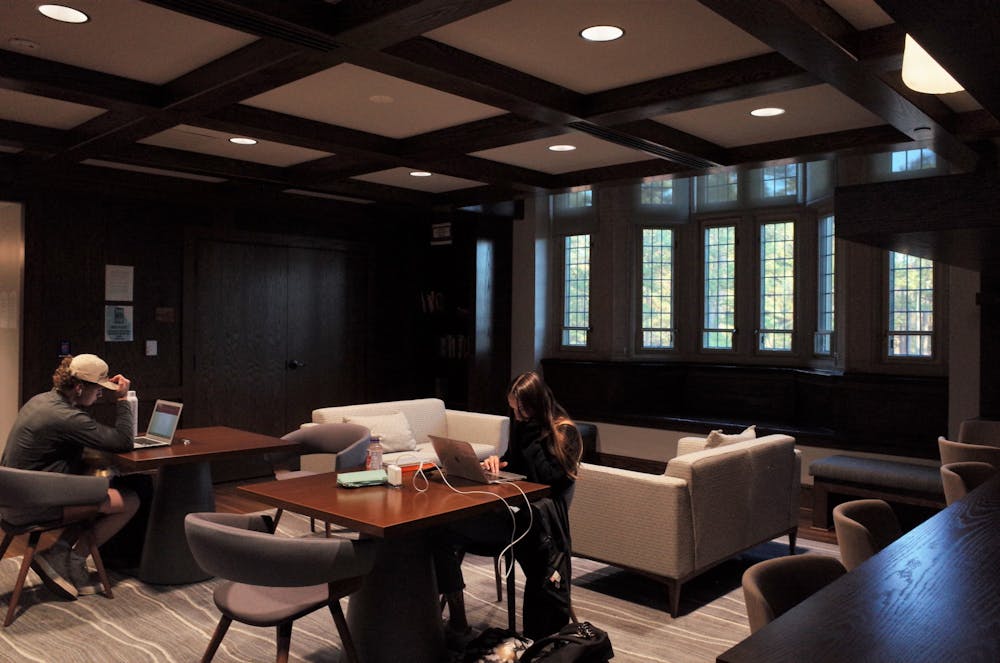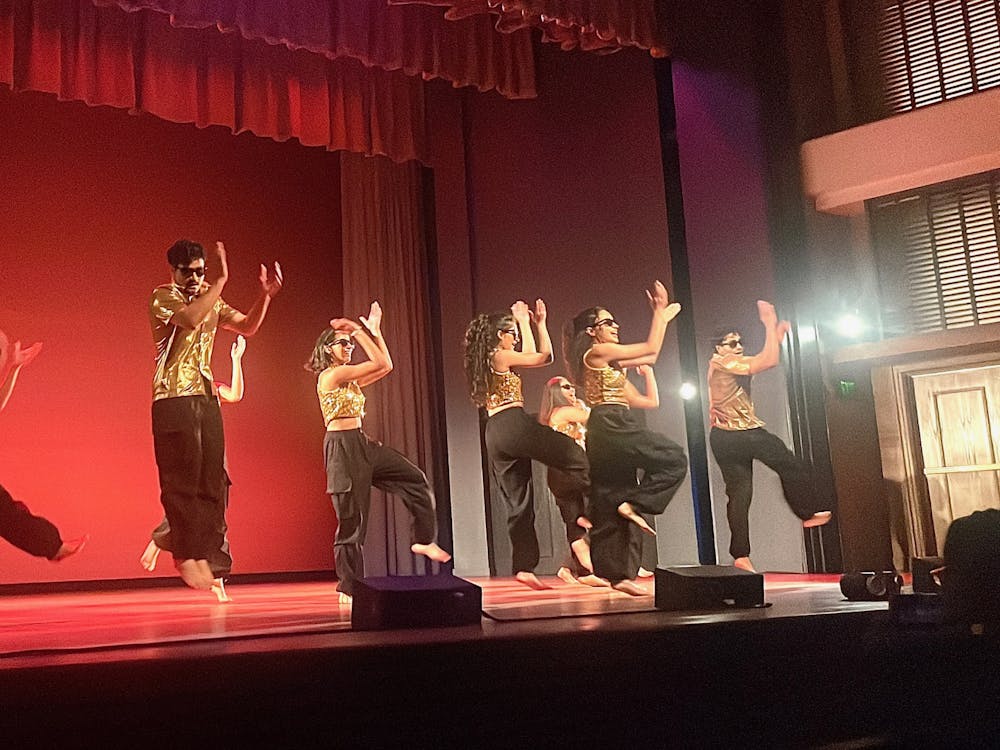The University of Richmond hosted three reporters on April 10 for an event called “Stories Beyond Borders: Chronicles of Courage” that focused on their coverage of underreported women who were taking back the narrative.
Journalists Tania Rashid, Elizabeth Flock and Neil Brandvold spoke about their time covering issues around the globe in the Humanities Commons to a crowd of around 50 people.
The journalists and longtime friends focused on stories that involved women and their battle for equality. Rashid started speaking about her time in Somalia during the famine and a woman she encountered there who became a community changemaker trying to fight back against the terrorist group Al-Shabaab.
Brandvold took the microphone after Rashid and spoke about their time in Guatemala covering the femicide, during which a woman was killed every 36 hours.
The women he highlighted in his piece fought back against the gang members. They would go out at night to interrupt any violence or killings by throwing fireworks, banging sticks and facing the gang members.
“It was this small group of just the bravest women I've ever met in my life, confronting these gang members and telling them to stop,” Brandvold said. “And I've worked with gangs for a long time. And I mean, I've told Tania,I still have nightmares of some of the members that we met but they would walk right up to them and just yelling ‘you that you're being useless right now, You could do so much why are you doing this or women?’”
His talk was followed by Flock, who recently published a book titled “The Furies: Women, Vengeance and Power” back in January about three women who are fighting against the systems that hold them down.
She highlighted the story of Angoori Dahariya, an Indian woman who formed a gang to fight back against many of the injustices that low caste women face in the state of Uttar Pradesh.
Flock said she decided to focus on women's issues because it was a topic she kept coming back to.
“I found myself watching movies or listening to music about women who fought back,” Flock said. “And then finally it was like, I'm a journalist, I can go find women who fight back in real life.”
The event concluded with a Q&A session, during which the guest speakers were asked about the hardships of being a reporter in such dire situations and why they chose to be journalists.
[insert any quotes from the Q&A concerning this if available]
Enjoy what you're reading?
Signup for our newsletter
The event was put on by the rhetoric and communications department with support from the Gottwald Speakers Bureau, School of Arts and Sciences, and Humanities Connect, in community with the journalism department, will and Solidarity Organization for Latinx Students.
The event was three years in the making, according to professor of rhetoric Mari Lee Mifsud. Rashid spoke at her Gender Violence first-year seminar and caught the attention of Senior Samina Chapagai, one of her students at the time. Chapagai was impressed by Rashid’s storytelling and wanted to hear her talk again so, alongside sophomore Daniel Polonia, they planned to bring Rashid back to tell more of her stories about her time being a reporter.
“Sumina and Daniel got together, and they just applied for every grant that they could apply for,” Mifsud said. “We got as much money as we could get, and we just collaborated and put this thing together.”
Chapagai said it was Rashid’s relatability and courage that urged her to create the panel and stay connected.
“She was the one in her family that spoke up, and I want to be the one in my family that speaks up,” Chapagai said.
Senior Noah Washington said hearing about the profound influence the speakers had as reporters made him want to make a change..
“I was completely and honestly like changed and inspired; like I feel there's just so much out there in the world that I just don't know about and I want to,” Washington said. “I'm so grateful I got to hear from people who have been out in the world, who are in the middle of this chaos, and just l have their light shine on me.”
Rashid said it is increasingly important to highlight the voices of journalists, especially in academic environments, with the rise of misinformation on social media sites.
“You know, I get kind of paranoid about media coverage,” Rashid said. “You look at social media, brand ambassadors or influencers that are just spreading misinformation. I feel like the journalist perspective is not being embraced as much as it should be. And so to have this type of space that's recognizing our work and our efforts, I don't take it for granted.”
Contact copy chief Andrea Padilla at andrea.padilla@richmond.edu.
Support independent student media
You can make a tax-deductible donation by clicking the button below, which takes you to our secure PayPal account. The page is set up to receive contributions in whatever amount you designate. We look forward to using the money we raise to further our mission of providing honest and accurate information to students, faculty, staff, alumni and others in the general public.
Donate Now



